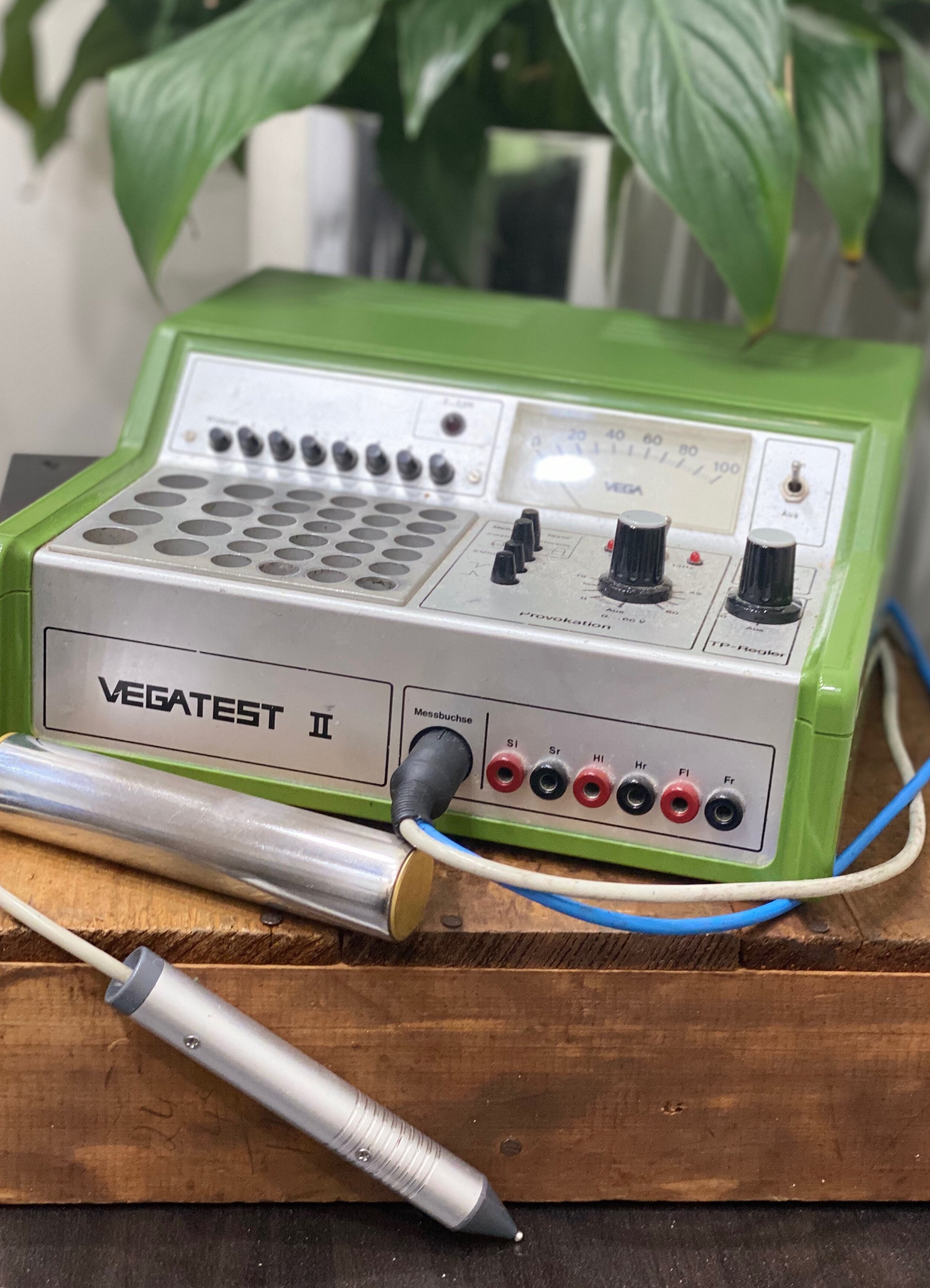Vega Testing
Detect Food and Environmental Sensitivities
The Allergy Centre has been using the Vega Machine in clinic for over 20 years to help identify food intolerances and sensitivities that may be causing stress and inflammation in the body. Food sensitivities and intolerances can present in many ways; it doesn’t always present as digestive issues.
Common symptoms that are seen in clinical practice in regards to food sensitivities include altered bowel movements, constipation, diarrhea, nausea, vomiting, mucous in stools, bloating, stomach pain, excessive flatulence, heartburn/reflux, colic, failure to thrive, disturbed sleep, eczema, hayfever, hives, rashes, asthma, excessive nasal/throat mucous production, poor immunity, fatigue, headaches/migraines, nutritional deficiencies, irritability/lowered mood, hyperactivity, ADHD, autism, and brain fog.
Vega testing is non-invasive (no blood is taken, no needles, nor any substance introduced onto your skin), yet extremely comprehensive covering a range of food and environmental substances that can be tested. It covers various food groups such as dairy, nuts/seeds, caffeine, meats, legumes, grains (gluten, wheat, spelt, rye, barley, oats, rice, corn), fruits, vegetables, artificial colours and preservatives. Environmental triggers can also be identified. Additional specific items can be tested on request if required.
How does it work?
The patient is required to hold an electrode/metal rod (similar to an ECG machine) in one hand, while the practitioner uses a pen-like probe to create a pressure on the palm of the opposite hand testing the electrical current through acupuncture meridian points. The machine is then collaborated to give a reading of ‘80’ which you will be able to see and hear on a separate device. Once the base line has been established, the practitioner will then place various vials of test substances into the machine one at a time, which measures the body's resistance and gives a degree of sensitivity to each substance that has been tested. If a substance reaches ‘80’, we can see that this food/item that is tested isn’t causing any issues/imbalance in the body. If an intolerance occurs, you will see this number drop whilst also noticing a change in the frequency of sound. Typically, reactions/intolerances will show up between 50-70 on the machine. You will clearly hear when your body is putting up a resistance to an object. It is important to note that severity of intolerance can be indicated by how low the number is; with the lower the number, indicating a stronger intolerance/stress on the body.
We can test all ages, from newborn babies to the very elderly. With young children/babies, a urine sample is required. When testing babies through a urine sample, we will still need an adult to complete the process above; requiring both their hands to be used for the testing however the rest of the process is altered slightly.
Once testing is complete, you will get a copy of your results which will indicate all the substances tested and any intolerances that may be present. You will generally be asked to avoid any of the intolerances that have occurred for a trial period of 1 month. Within that time, we will be able to see what impact these foods have had on your health, noting improvements along the way. A follow up appointment is usually required/recommended to monitor progress with the aim of moving forward. We will often retest previous substances that you have reacted to, to see if there has been an improvement in your body’s tolerance levels. Occasionally supplements and specific advice/remedies may be prescribed. Avoiding specific foods isn’t always long term, sometimes our body just needs a break/reset or reduction in the quantity that we are consuming.
Nutrigenomics Testing
Bioceuticals Wellbeing Bundle
Clinical Services DNA testing looks at variations in genes known as single nucleotide polymorphisms (SNPs). These common gene variations can have an effect on a range of factors that may go on to impact a patient's health. These effects can include enzyme function, nutrient metabolism and protein expression. Testing for certain SNPs can therefore provide some insight into potential health effects, helping to highlight the interrelationships between genes, nutrition and lifestyle.
What biological functions are better understood through this testing?
The Wellbeing Bundle provides a health summary of key SNP’s and how these impact, and are impacted by various processes in the body such as; methylation, neurotransmitter production and function, hormone metabolism, detoxifcation, antioxidant status, nutrient metabolism, transportation and absorption, cardiovascular disease risk, energy production, and DNA expression.
Integrative Pathology Tests
Nutripath Integrative Pathology has more than 200 comprehensive tests available that may be useful for detecting underlining issues and concerns that normal GP/doctors won’t cover/test for.
To view a list of tests available please see the link below.
https://www.nutripath.com.au/shop/



